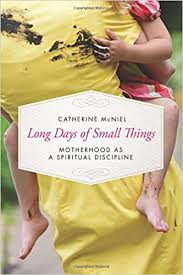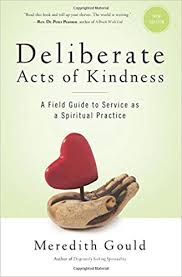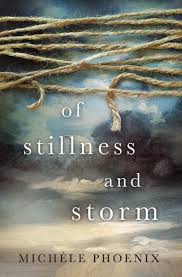I’ve been talking a lot about my book lately in this space. I’m grateful for the opportunity to share its message with you! However, this week, I’m looking forward to highlighting the writing of others.
 Today, I want to draw your attention to an excellent resource for those who’ve experienced trauma and/or loss. Love Letters From The Edge (free today only on Kindle!) is a beautifully-written series of letters that gives voice to experience of a trauma survivor – and the way in which God would respond to those words. Twelve weeks’ worth of entries make this book an excellent devotional-style companion – but this is far more than a devotional book. The words come from two authors who have walked long in the valley of the shadow formed by trauma and loss, and can speak truthfully and graciously about the experience.
Today, I want to draw your attention to an excellent resource for those who’ve experienced trauma and/or loss. Love Letters From The Edge (free today only on Kindle!) is a beautifully-written series of letters that gives voice to experience of a trauma survivor – and the way in which God would respond to those words. Twelve weeks’ worth of entries make this book an excellent devotional-style companion – but this is far more than a devotional book. The words come from two authors who have walked long in the valley of the shadow formed by trauma and loss, and can speak truthfully and graciously about the experience.
I had the honor of reading an advance copy of the book and wrote these words of endorsement:
Love Letters From The Edge contains some of the most wise, frank and courageous prayers you will ever read. Those who’ve survived trauma, abuse, or the pain of loss will recognize their own emotions, struggles and questions mirrored in the words of this book. But this is not a one-way heaven-aimed monologue. Shelly Beach and Wanda Sanchez invite survivors into a two-way conversation with the Lord of love. This is the kind of love letter that can speak into the deepest crevices of a hurting heart. Highly recommended.
If you’d like to know more about the book, I’m happy to share a bit of an interview Beach and Sanchez did that tells a bit more about the story behind the Letters:
Give us an overview of Love Letters from the Edge. Why is this book different from others on the market?
This book is different from most others because it gives a voice to the hurting by expressing their suffering and pain in letters to God. Those who have been traumatized and deeply wounded by life often feel like it’s unspiritual to express anger, frustration, and questions to God. The church can sometimes make us feel guilty for doubting and expressing honest feelings. But God wants us to bring our questions, doubts and anger to him. The psalms show us that in our deepest pain, loss, and suffering, we’re to cry out to God. Those cries aren’t always wrapped up in polite phrases.
But God sees us, knows us and loves us when we are experiencing our deepest despair. His love never changes based on our emotions or actions. Love Letters from the Edge allows women to know that they are not alone in feeling pain and frustration and that God loves them relentlessly. It is a more than a book of devotions or meditations: it is a conversation between a broken, hurting daughter and her loving father.
Why is post-traumatic stress disorder an important issue for women and the general population to understand? Why should the church be talking about it?
Trauma can be simply defined as “any experience that overwhelms the brain.” The “overwhelming” part of the definition means that a chemical wash shuts down half of the brain and “traps” the experience on one side, so the person cannot file the experience with a beginning, middle, and end as other experiences are stored. Approximately 8% of the general population suffers from post-traumatic stress disorder. 10% of women will suffer from PTSD in their lifetime. PTSD can be caused by medical trauma (cancer, cardiac symptoms/treatment, spinal surgery, invasive procedures, miscarriages), natural disasters, the separation of adoption (parent or child), sexual or physical abuse, violence or threat of violence, caregiver stress, job-related stress (law enforcement, firefighters, first responders, social workers, etc.), military service, and many other situations common to life.
The simple truth is that someone you know is suffering from trauma and may not know it or understand the symptoms. In inner cities like Chicago and Los Angeles, the rates of PTSD are higher than for the military returning from Afghanistan.
Women in particular can suffer in silence and isolation for years with escalating symptoms and not understand why. The church needs to work to create greater understanding of brain illness in general as part of overall health and stewardship of our bodies and caring for one another. We need to understand what people with PTSD feel like and how to better help them cope with their symptoms and seek effective treatments.
Can you give an overview of PTSD—what it looks like and what it feels like? And how does PTSD impact people of faith?
Very briefly, traumatic experiences affect the brain’s ability to file experiences in the proper sequence in memory and within the other contexts that our brain creates. This means that people who develop the symptoms of PTSD often live with many symptoms that the brain uses to cope with the disconnections.
Symptoms include addictions, eating disorders, self-abuse, depression, suicidal thoughts, dissociation (zoning out or “going away” to cope with overwhelming environments and triggers), avoidance of situations or people or places that remind them of the traumatizing event), loss of interest, isolation, fatalistic thinking, panic or anxiety attacks. Those with PTSD can also experience physical problems such as chronic headaches, nausea, body pain, and other symptoms.
Most people with PTSD feel great shame. They often struggle with their symptoms and addictions for years and seek treatment after treatment with the feeling that they may never be able to overcome their particular addictions or behaviors. If they are Christians, they feel further shame because they feel these behaviors are “wrong.” They may have experienced the judgment of those who believe that Scripture, healing prayer, and faith are sufficient to overcome their symptoms.
However, it’s important to remember that the symptoms of PTSD are the result of a physical, bio-chemical response in the brain. Treating only the symptoms (addictions, obsessive-compulsive behaviors, etc.) of PTSD without treating the trauma itself is much like treating the symptoms of cancer (nausea, pain, etc.) without treating the actual cancer itself. Churches are often helpful in providing programs that treat the symptoms of trauma without understanding how to treat trauma itself.
Who’s your audience for this book, and what qualifies the two of you to write about these issues?
Our audience for this book is a woman who’s experienced overwhelming pain or suffering in her life and has struggled with symptoms of PTSD or in her faith or someone who wants to understand hurting women better or who provides spiritual counsel or therapy to broken women.
To learn more about Beach and Sanchez’ ministry, PTSD Perspectives, click here.











